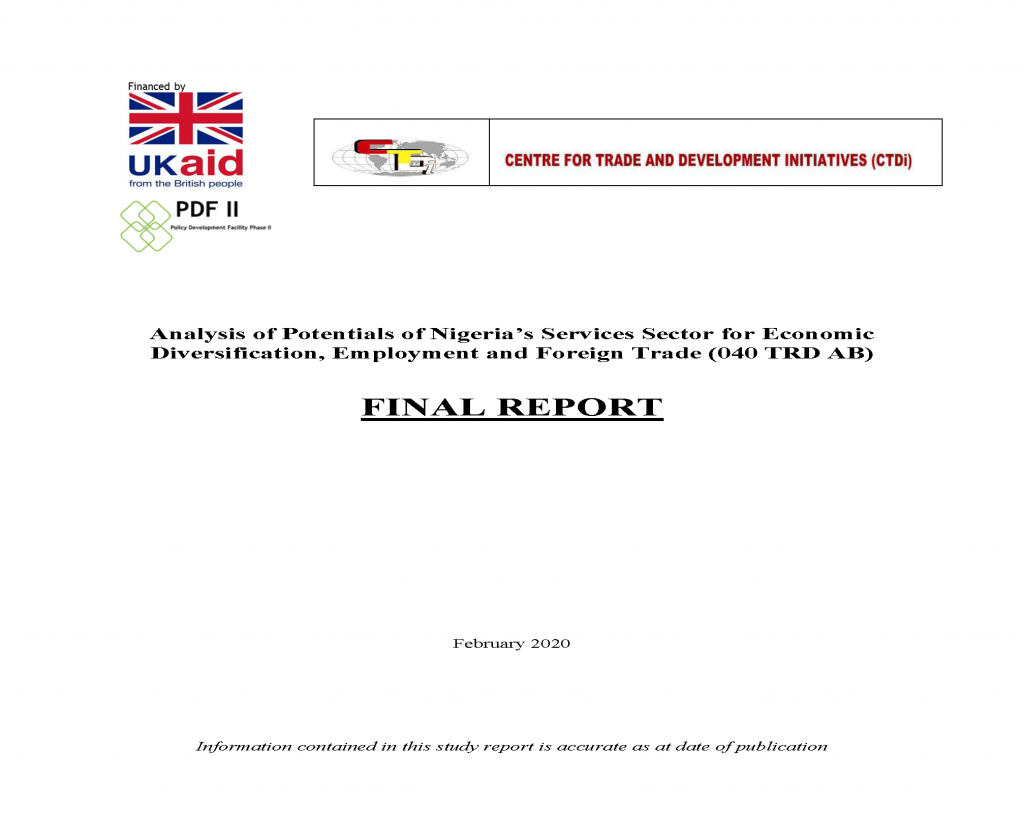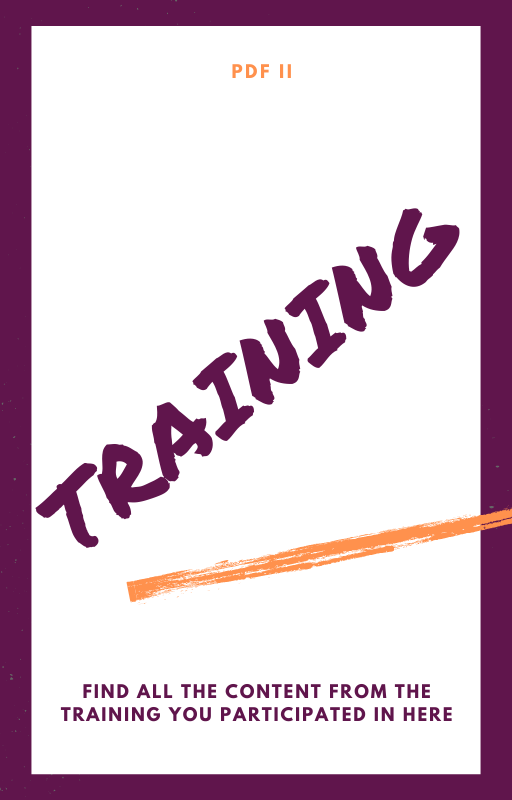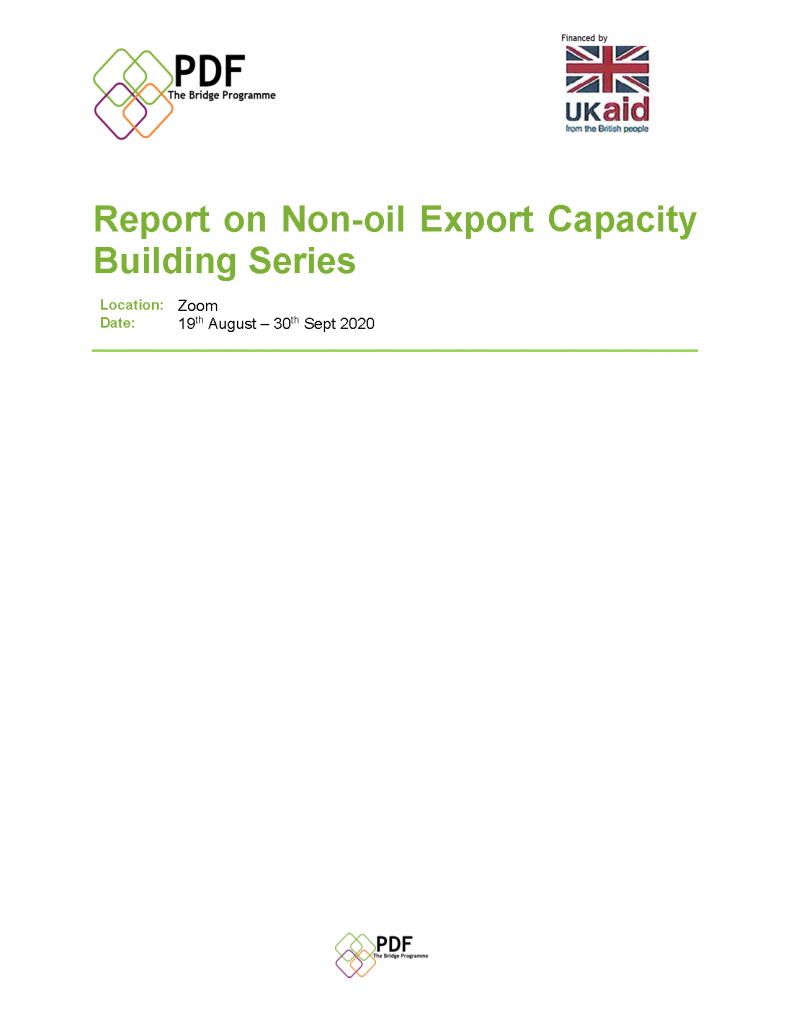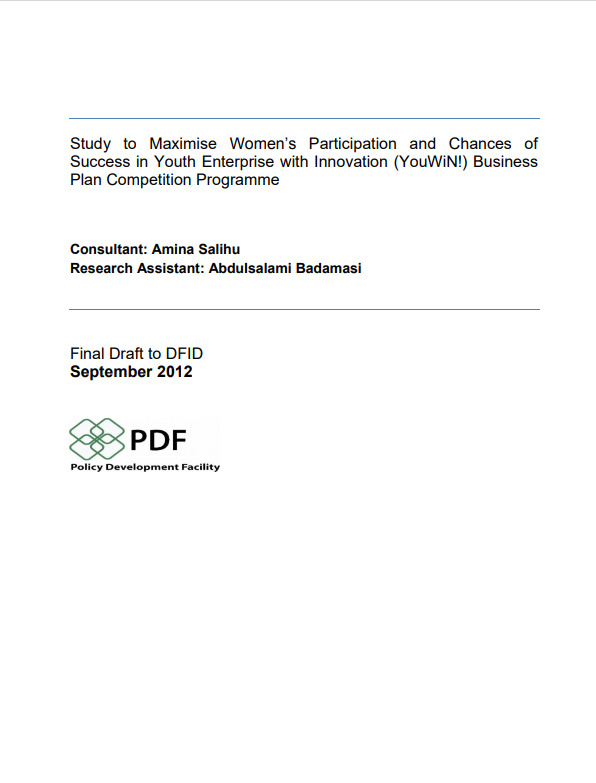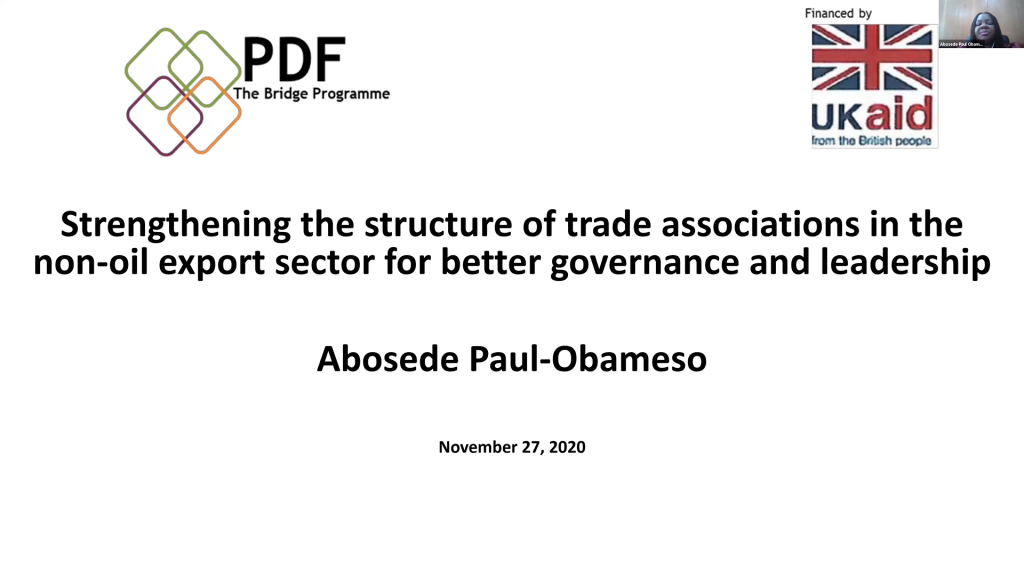A Roundtable on the Export Expansion Grant
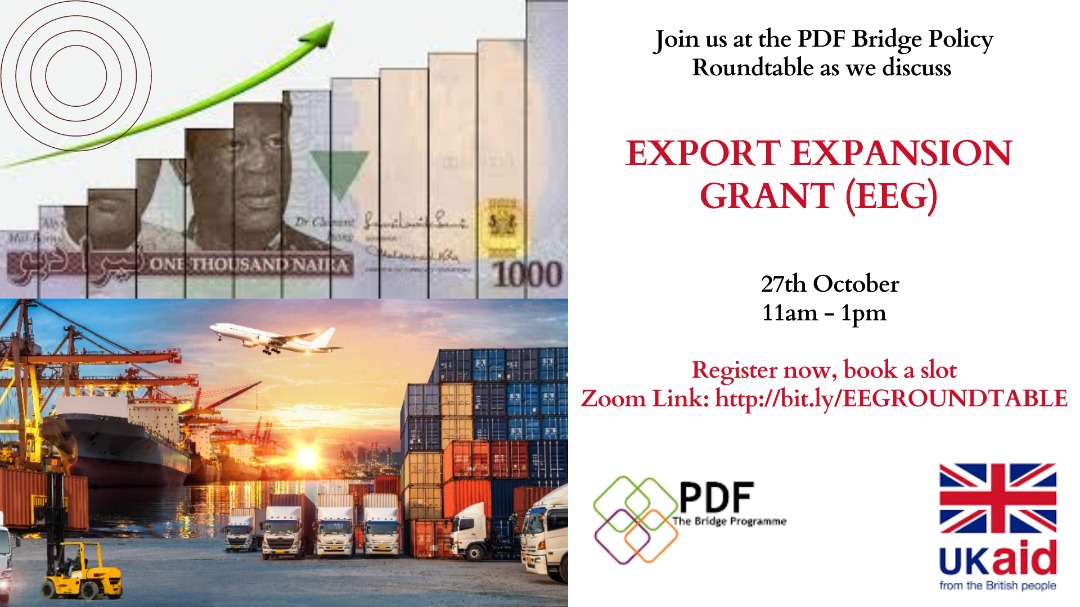
Associated resources
Africa’s contribution to global trade in services is little with slow growth despite rapid globalisation and liberalisation. The continent’s intra – African trade in services is also relatively little. Nigeria’s services sector contribution to its GDP is huge, representing 55.8 per cent in 2017. It recorded a growth rate of 1.83percent in 2018. Hence, the services sector possesses the immense potential to promote diversification, employment, and growth, even without a current holistic services sector policy. This study specifically mapped and profiled key services sectors; reviewed domestic regulations relating to services; estimated the current and future potentials for export, and provided associated recommendations.
PDF II held a two-day capacity building training themed: “Capacity Building for Banks and DFIs”. This is designed to explore access to finance challenges, awareness campaigns, and opportunities that non-oil exporters face with banks in accessing finance. The capacity building covered topics such as Export Industry Regulations and Documentations, payment methods and trade finance instruments, Handling export finance options, managing export risks, understanding the franchising potential etc.
The Trade Policy Work Stream started out by conducting a needs assessment to get direct feedback from export-oriented MSMEs, export-supporting government institutions, and export business service providers to ascertain the capacity gaps. The top 5 challenges highlighted by the respondents include lack of market linkages, lack of finance, lack of market intelligence, limited knowledge of destination country requirements, and Export documentation.
Respondents were further asked about what they would like to see if there is an opportunity for assistance with capacity building for export readiness and export market access. Each responded provided its top 3 areas of preference for capacity building. The findings from the overall assessment provided a guide on areas to address.
In response to their needs, TRD workstream designed a targeted capacity building for the non-oil export community of practice to address the knowledge and skill gaps through a 4-part Export Capacity Building (CB) Series.
This is a study carried out to provide the management of YouWiN with an improved approach they can adopt to encourage women’s participation in the business plan competition. It was conducted in 2012 with the support of FCDO (formerly DFID). Based on the findings and lessons from the study, recommendations were made for consideration by the management of the YouWiN programme to increase the number of women participating, winning grants and running sustainable businesses under the Youth Enterprise with Innovation in Nigeria Programme (YouWiN!)
Trade Associations play a role in promoting appropriate policies, regulations, and necessary reforms relating to their sector of operations. They create opportunities for networking and consultations among industry players as well as being a voice when it comes to new regulations and legislations while encouraging best practices among its members. According to Peter Gomersall[1], trade associations exist to support their members and further their interests, to defend them when they are under threats and to promote a common position on issues affecting the environment in which they operate.
Given the foregoing, the PDF Bridge Trade Policy Workstream organised a two-day capacity-building session targeted at strengthening the leadership of non-oil export-related trade associations and improve on their business strategy to position them to take advantage of the opportunities in the non-oil export value chain. The sessions had in attendance delegates from government agencies such as FMITI, NAQS, FMARD, NOTN, CBN as well as executives of trade group drawn from various industries including agricultural commodities farmers, agricultural commodities exchange and aggregators, industrialists, agro-processors, women, and youth development groups, textile and apparel among other participants.
[1] https://www.iiste.org/Journals/index.php/JEDS/article/download/7852/8030

